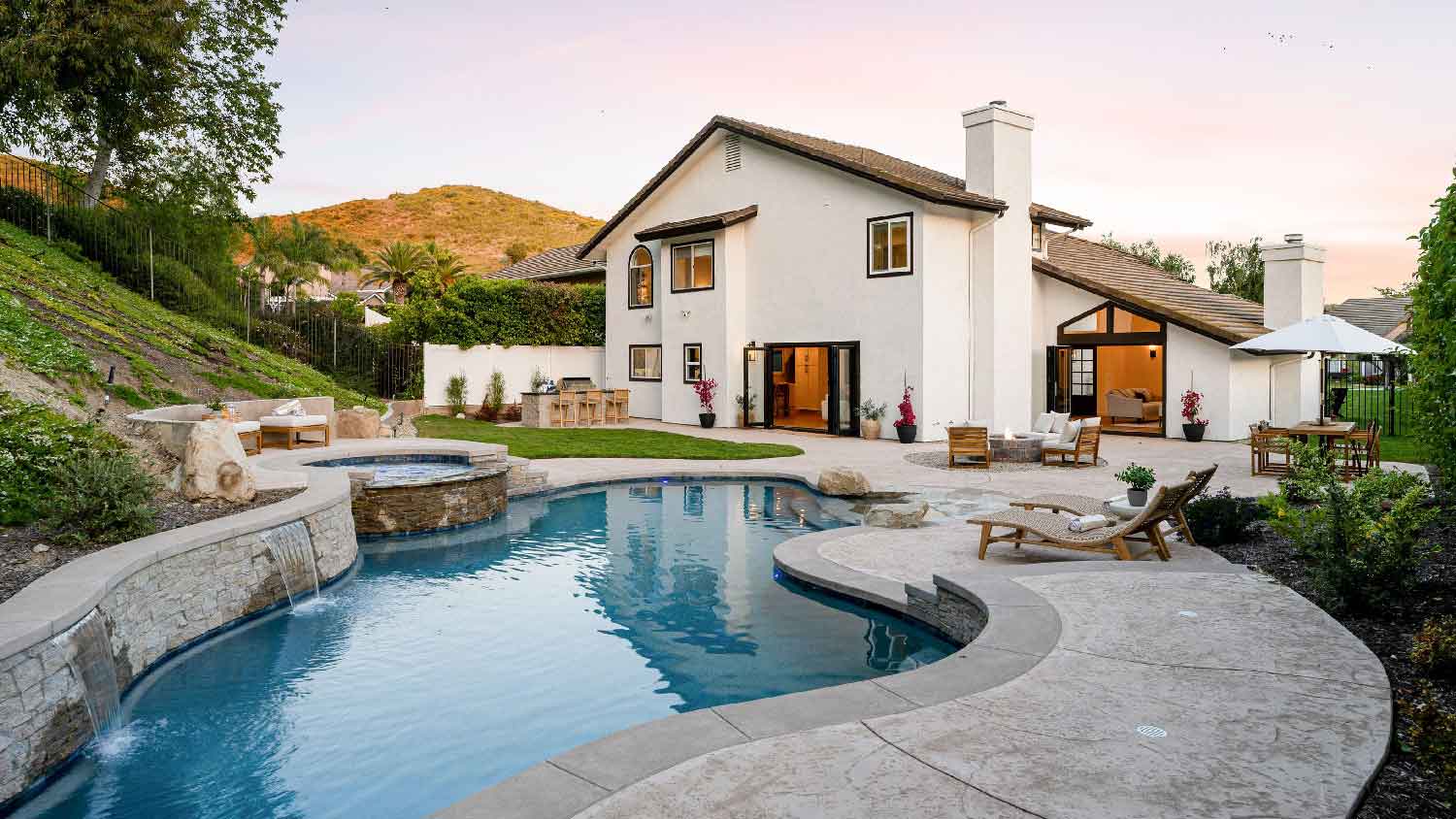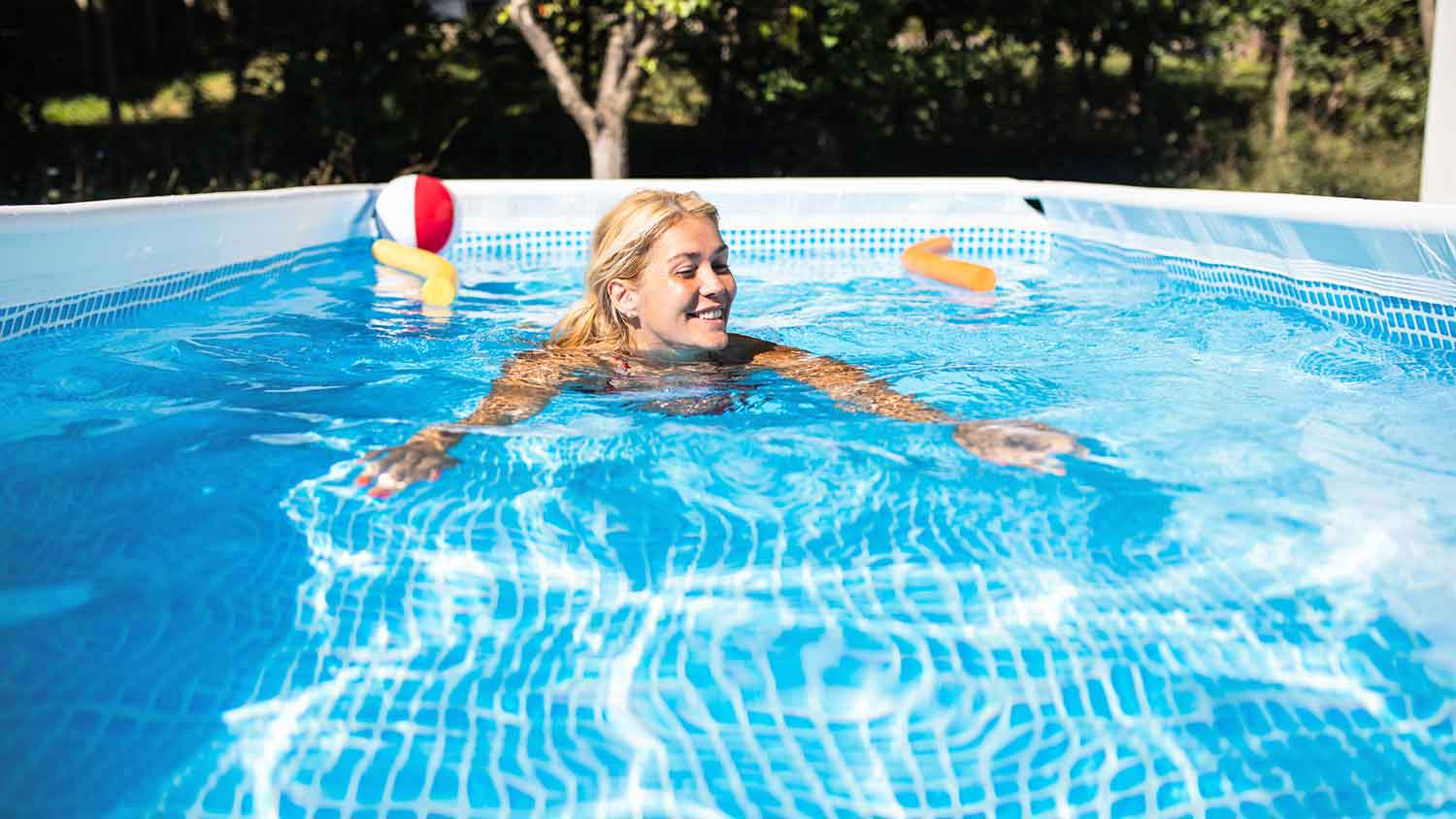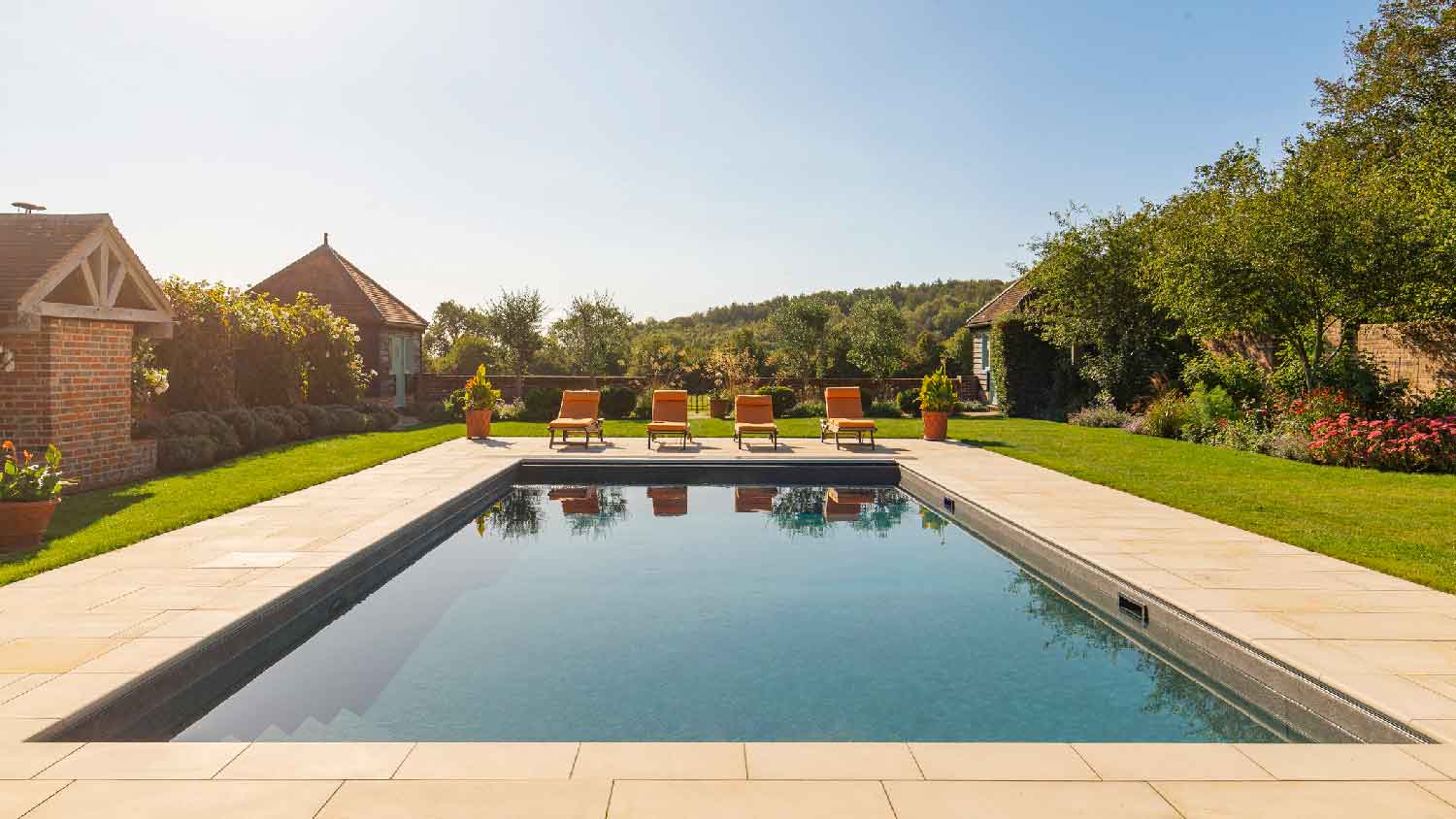Who to Call to Install a Hot Tub
Don’t DIY this backyard upgrade—bring in a pro


You bought a hot tub to help you relax, not worry about the installation—and while you shouldn’t stress over it, hot tubs are actually more challenging to install than they look. The highest-end models aren’t plug-and-play; you’ll need to install electrical wiring and plumbing. In other words, you should really hire a pro—but who?
Want to know who to call to install a hot tub? There are a couple of contractors that fit the bill.
Benefits of Hiring a Licensed Hot Tub Installer for Hot Tub Installation
It’s not just a good idea to hire a licensed pool contractor for hot tub installation—it may actually be a requirement. In some areas, contractors must have a specialized license (like a pool builder’s license) to install hot tubs, plunge pools, and any other type of pool beyond a certain depth. If you hire a licensed pool contractor, the benefits include:
Proper installation: Hot tub installation is more complicated than it seems. In-ground tubs require excavation. Even if you install an above-ground spa, you’ll still need to level the ground, install a reinforced deck or concrete slab, and do electrical work.
Safety: Hot tub installation requires electrical work. This can be dangerous to DIY, especially since some components come into direct contact with water. Your hot tub contractor will use a licensed electrician to ensure the electricity is up to code and that the rest of your hot tub and pool deck area is safely installed.
Warranty: Hot tubs typically come with a manufacturer’s warranty. You may void that warranty if you don’t hire a licensed pool contractor to install your hot tub.
Insurance: Licensed contractors carry liability insurance, which protects them if a mistake leads to damage. With a DIY installation, you won’t have this protection.
Cost: Hot tubs cost an average of $6,000—and in-ground hot tubs cost even more. Your contractor can likely source materials at a lower rate. Sometimes, they have special deals with different manufacturers. Even if they don’t, they’ll save you on costly repairs from a DIY job gone wrong.
Can I DIY Hot Tub Installation?
If you want to reap the benefits of a hot tub on a budget, you may be tempted to DIY the installation. Unfortunately, this usually isn’t a suitable DIY project. All 220-volt hot tubs require electrical work; some models may even require plumbing. A licensed contractor must do both of these jobs. You can’t get a permit in most cases unless you work with a pro.
The only exceptions are 120-volt plug-and-play hot tubs. You can plug this type of hot tub right into a GFCI outlet and fill it with your garden hose. Either way, you may still want to work with a hot tub installer near you to ensure it’s on sturdy, level ground.
Can I Hire an Electrician for Hot Tub Installation?

If you’re installing a 220-volt hot tub, you’ll need to hire a pool electrician. This type of hot tub is hard-wired into your home’s existing electrical wiring, and you likely won’t get a permit without a pro.
The good news is that if you hire a hot tub installer, they typically already work with a preferred licensed electrician to install the electrical wiring. If you already have a trusted electrician, you can always hire your own. Remember, they’ll only handle the electrical work, not the rest of the installation.
Can I Hire a Plumber for Hot Tub Installation?
Not all hot tubs require plumbing work, but in-ground models will connect to your home’s drainage system. In this case, you’ll need to bring in a licensed plumber. In most areas, you won’t be able to get a permit without one.
If you work with a hot tub installer, they’ll ensure a licensed plumber handles any potential plumbing work. Typically, they’ll subcontract this job if they don’t already have the license.
How Do Pool Contractors Install Hot Tubs?
There are a few steps contractors take when installing a hot tub or Jacuzzi. It depends on if you have an in-ground or above-ground hot tub. It always starts with the permitting process. After your contractor obtains permits, they'll:
Prep the area: They’ll either excavate (for an in-ground hot tub) or install a level foundation (for an above-ground hot tub).
Install the hot tub: This includes placing the hot tub on the foundation or in the excavated hole. If you have a custom hot tub, they’ll install the materials similar to how they’d install a pool.
Wire the hot tub: They’ll bring in a licensed electrician to install your hot tub wiring. This includes a designated spa panel that can shut off the hot tub in an emergency.
Attach the drain: If your model requires plumbing work, a licensed plumber will attach your hot tub to your home’s drain system. Some hot tubs drain via a fixture that connects to a garden hose, and plumbing work isn’t required.
Clean the hot tub: Once it is installed and connected, your contractor will clean it.
Fill it with water and test: After installation, your contractor will fill your hot tub with water and test to ensure the components work.
Fix up the landscaping: The last step is cleanup. If your contractor dug trenches through your grass for electrical wiring, they’ll fill back in the sod.
From there, you’ll need to maintain your hot tub. This includes raising and lowering the pH of the water and adding the necessary sanitizing chemicals. The proper ratio of chemicals depends on how many gallons your hot tub holds.















